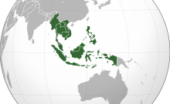Molly Minturn - My family is heartbroken to share that my father died in surgery on Monday, Feb. 10. It…
Wednesday Night #1989
Written by Diana Thebaud Nicholson // April 29, 2020 // Wednesday Nights // Comments Off on Wednesday Night #1989
Tuesday, 28 April was the anniversary of the opening of Expo 67. The summer of ’67 will remain a glorious memory for Montrealers, a true awakening of the international, cosmopolitan, spirit of the city and a civility towards one another and the visitors we welcomed. Happier times indeed. What a pity that ambiance could not last forever.
Before heading into the serious news, for any who have not seen them, Brad Pitt’s wonderful portrayal of the current favorite folk hero, Dr. Fauci , and the incredible Lord of the Dance video – amazing editing!
As we head into another Zoom Wednesday Night (please let me know), the news that Quebec’s economy is to gradually reopen has been met with a mixture of sighs of relief from those whose lockdown has been particularly onerous and/or stressful, cautious optimism from some retailers and industries, and severe unease from parents and teachers of elementary schools. It is understandable that governments want to enable people to go back to work and pump up the economy, but is it too soon? And, oh dear, does this mean we will once again have to navigate the dreaded orange cones?
Andrew Coyne is dubious, arguing We’re nowhere near herd immunity. Why would we trust governments to get us there?, while La Presse wonders how to organize the reopening of elementary schools when everything must be re-thought Le casse-tête du grand retour des tout-petits.
There is lots being written and spoken about concerning the changes that the pandemic will bring to society and the economy, some optimistic and some highly pessimistic. This analysis of the impact on the future of retail and therefore American cityscapes -applicable to Canada and elsewhere? – is a dose of both “The big will get bigger as mom-and-pops perish and shopping goes virtual. In the short term, our cities will become more boring. In the long term, they might just become interesting again.” The Pandemic Will Change American Retail Forever – The big will get bigger as mom-and-pops perish and shopping goes virtual. In the short term, our cities will become more boring. In the long term, they might just become interesting again
As more and more details emerge regarding the murderous rampage of Gabriel Wortman in Nova Scotia, Andrew Caddell‘s column in The Hill Times looks at the inadequacy of emergency response capacity in Canada including profiling, training and equipment.
In It’s Not Enough to ‘Get Back to Normal’, Susan Rice promotes expanding national service in the U.S. by hiring “trained contact tracers who can interview, assess and support those quarantined, and potentially administer vaccines. Experts estimate the United States will need 100,000 to 300,000 contact tracers … with skills that match those of most high school graduates. We can recruit this work force from public health personnel as well as the newly unemployed, college students, recent graduates, idled Peace Corps and AmeriCorps volunteers, and retirees.” Could this be a model for Canada, and in particular, Justin Trudeau’s aim to promote national service for students
I am pretty sure we all agree that there will never be a return to what we considered ‘normal’. Please keep thinking about and sharing how you envision the post-pandemic changes in society, the economy, education, business, and other relationships.
David Kilgour was in Washington on Monday to support Doris Liu at the most successful U.S. premiere of her documentary “In the Name of Confucius“. He sends the link to Rachelle Peterson’s report on the Confucius Institutes in the US released yesterday as Doris’ film was premiered.
See also: In The Name Of Confucius: How China Is Invading Western Universities With Communist Propaganda
According to an official Chinese government website, there are now 500 “Confucius Institutes” around the world – with the aim of 1,000 by 2020. In 2015, their budget was $310 million, and from 2006-2015 China spent $1.85 billion on Confucius Institutes. On the surface, these institutes exist to teach Chinese language and promote Chinese culture – a Chinese equivalent of the British Council, American Centres or the Alliance Française. Unlike their western counterparts, however, Confucius Institutes are directly funded and controlled by the Chinese government, but embedded within universities around the world, giving China influence over the curriculum.
The Epoch Times is again under fire, this time for a special edition, characterized as that was delivered to potential new subscribers some of whom described it as ‘racist and inflammatory’. Like the ‘documentary’ released previously, it advances the conspiracy theory about the origin of the coronavirus which has been debunked by numerous experts (See Long reads below). One more contribution to The dangerous global flood of misinformation surrounding COVID-19 – How to sort through this flood and be assured that you only have accurate, up-to-date information, whether about COVID-19 or unrelated world events, especially when national governments and/or their leaders eagerly contribute to the spread of fake news? Need we mention Trump’s disinfectant suggestion? Fact checkers serve a useful purpose -and many seem to delight in their task- when covering the U.S. administration, but there is far more that is less easy to diagnose. And, human nature ensures that many simply seek out whatever reinforces already-held opinions.
The mystery of Kim Jong-un’s health is a case in point. Amid rumors of grave illness, even his death, New York argues that his health and possible succession is of less concern than the threat of an epidemic overwhelming the North’s meager medical facilities. Meanwhile North Korea claims that there is no coronavirus within its borders.
In The End of the US-China Relationship, Stephen Roach points to to findings of a new poll by the Pew Research Center that 66% of US citizens now view China in an unfavorable light – six points worse than last summer and the highest negative reading since Pew introduced this question some 15 years ago while an equally nationalistic Chinese public is also irate at the United States. That is not just because President Donald Trump insisted on dubbing a global pandemic the “Chinese virus.” It is also because whispers turned into shouts linking the outbreak of COVID-19 to alleged suspicious activities at the Wuhan National Biosafety Laboratory.
China must not shape the future of human rights at the UN
Kyle Matthews & Margaret McCuaig-Johnston
(The Conversation) In 2014, President Xi Jinping began encouraging Chinese officials to move into leadership positions in international organizations and standards bodies to ensure that China’s objectives and policies were given full influence.
We can see now this policy is having an impact as China exhorts these multilateral institutions to expel Taiwan from membership and adopt Chinese priorities. Now human rights have been added to China’s sphere of influence.
Long reads
In Conversation: Thomas Piketty The scholar of inequality warned us that our economic systems couldn’t withstand a global catastrophe“I think we really need to rethink very deeply the very notion of internationalism. It’s very difficult today to say anything positive about internationalism. To most people, this has become a bad term. … The bottom line is that we cannot continue having free circulation of goods, services, capital without common taxation.
I think any two countries or any group of countries who today have a trade agreement or an economic agreement with free capital flow, in effect we negotiate that we will not follow this treaty unless we have verifiable targets in terms of carbon emissions, economic justice, or minimum tax rates. I think the pure trade treaties are dead, basically. In the long run, nobody will want to have pure trade treaties without any common objectives in terms of sustainable and equitable development.
But short of that, nationalism is likely to win the day, especially among the middle class and lower socioeconomic groups.”
Preventing violent extremism during and after the COVID-19 pandemic
Headlines over the past few weeks have suggested that violent extremist and terrorist groups ranging from Colombian hit squads to ISIS affiliates in sub-Saharan Africa to far-right extremists in the United States are watching the disruption caused by COVID-19. Many are at least aware of the potential to benefit from that disruption, and in some cases they are already taking advantage.
The Controversial Experiments and Wuhan Lab Suspected of Starting the Coronavirus Pandemic
The report, dated March 27 and corroborated by two U.S. officials, reveals that U.S. intelligence revised its January assessment in which it “judged that the outbreak probably occurred naturally” to now include the possibility that the new coronavirus emerged “accidentally” due to “unsafe laboratory practices” in the central Chinese city of Wuhan, where the pathogen was first observed late last year. The classified report, titled “China: Origins of COVID-19 Outbreak Remain Unknown,” ruled out that the disease was genetically engineered or released intentionally as a biological weapon.
Will COVID-19 Remake the World?
The crisis seems to have thrown the dominant characteristics of each country’s politics into sharper relief. Countries have in effect become exaggerated versions of themselves. This suggests that the crisis may turn out to be less of a watershed in global politics and economics than many have argued. Rather than putting the world on a significantly different trajectory, it is likely to intensify and entrench already-existing trends.
Global China: Technology
China aspires to global technology leadership. Can it achieve its ambitions? What would the impacts be at home and abroad?
This installment of papers for the Brookings Foreign Policy project “Global China: Assessing China’s Growing Role in the World” assesses China’s growing technological reach in the world by focusing on both thematic and technology-specific topics.
Things you absolutely need to know category
New York and Boston Pigeons Don’t Mix
The East Coast is made up of two pigeon genetic megacities, and a patch of Connecticut seems to be what’s keeping them apart



